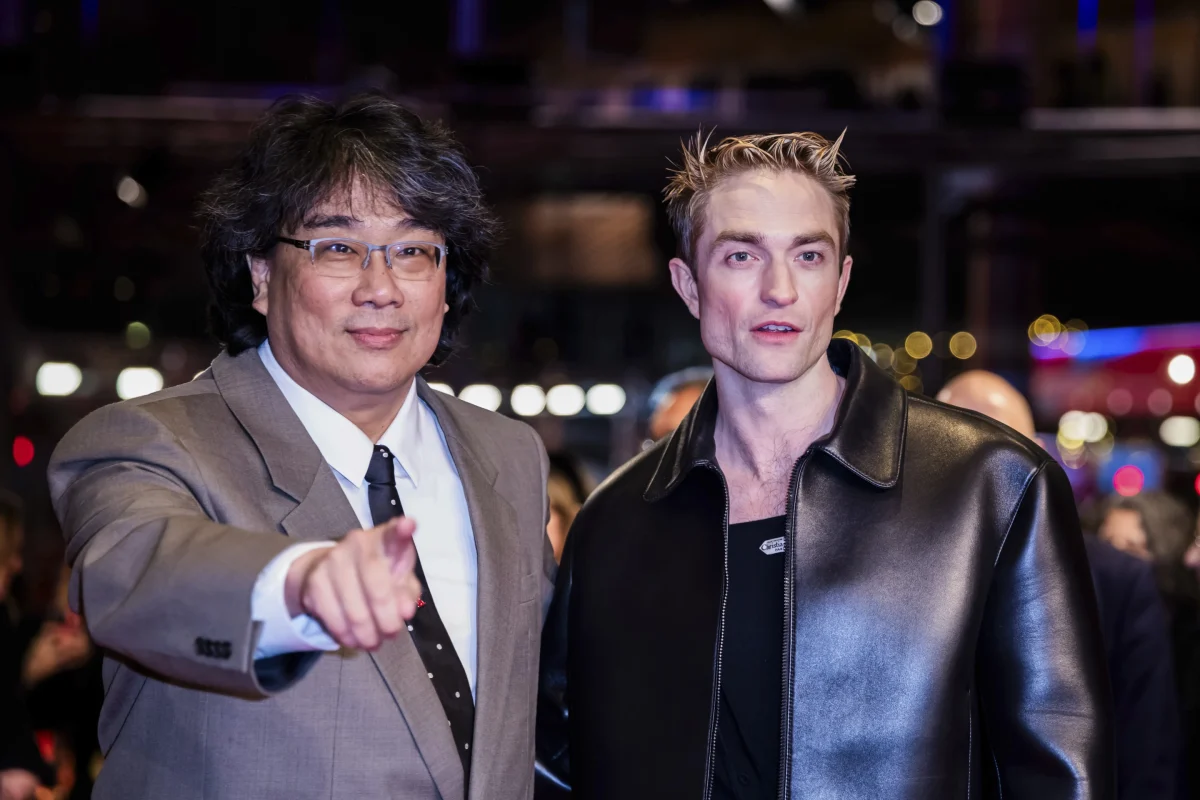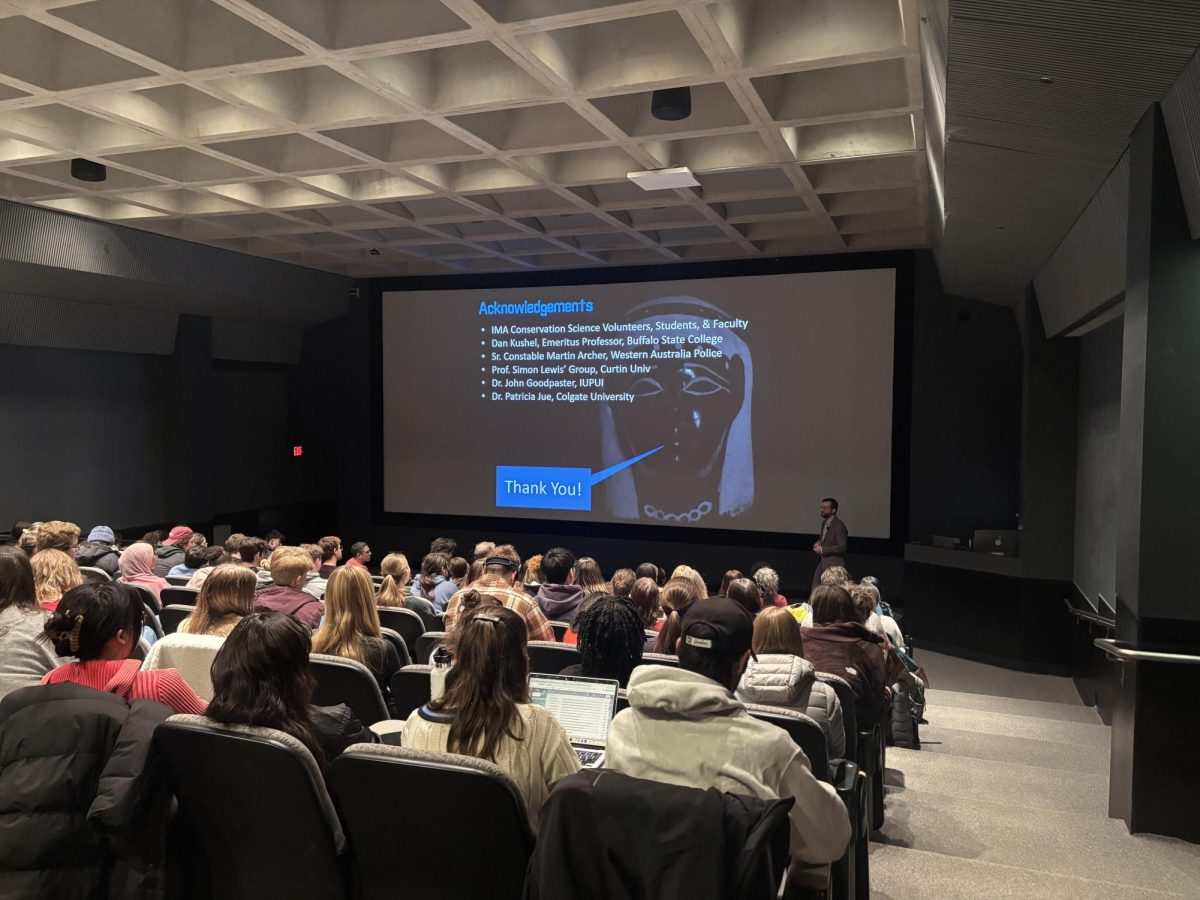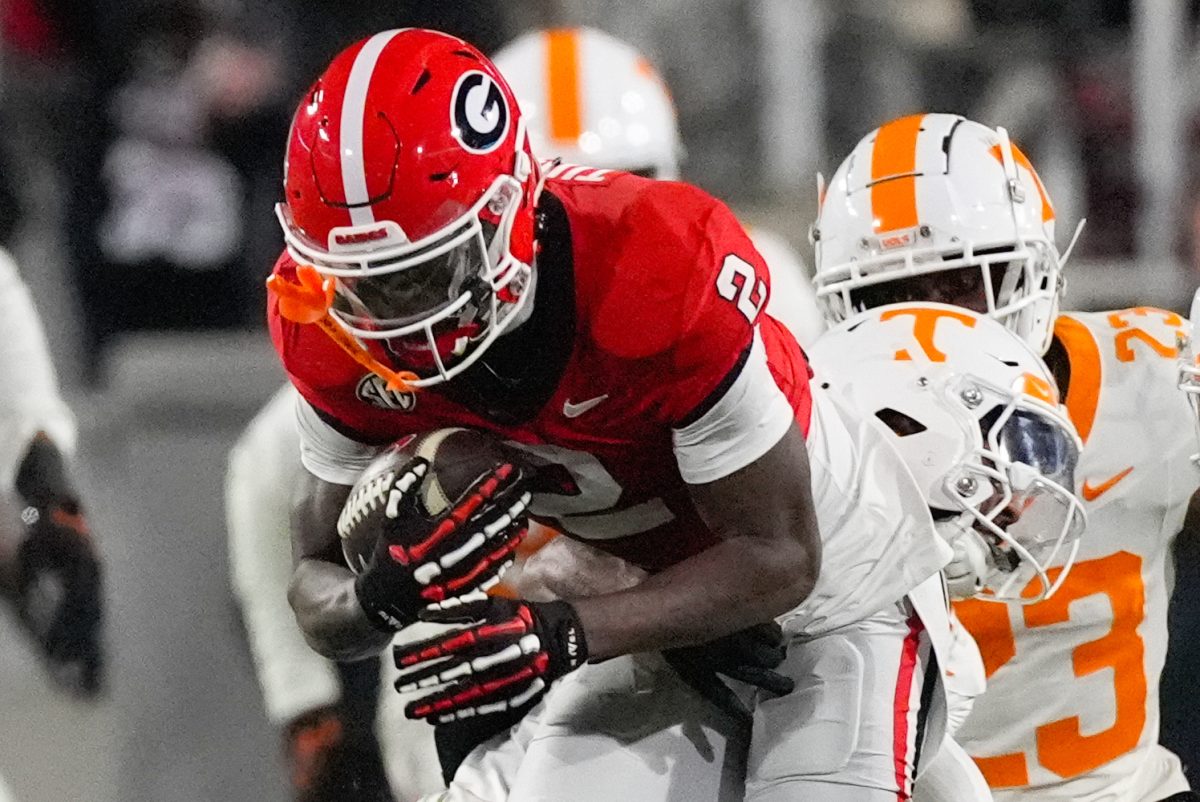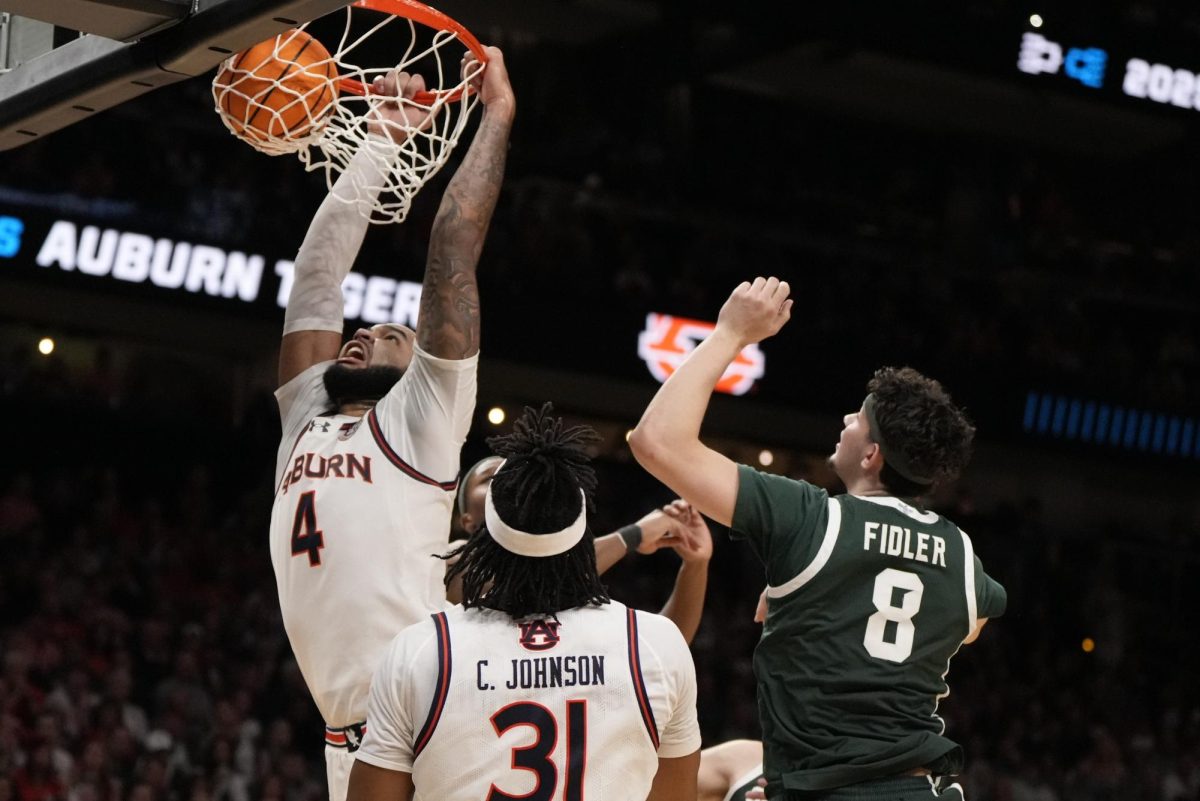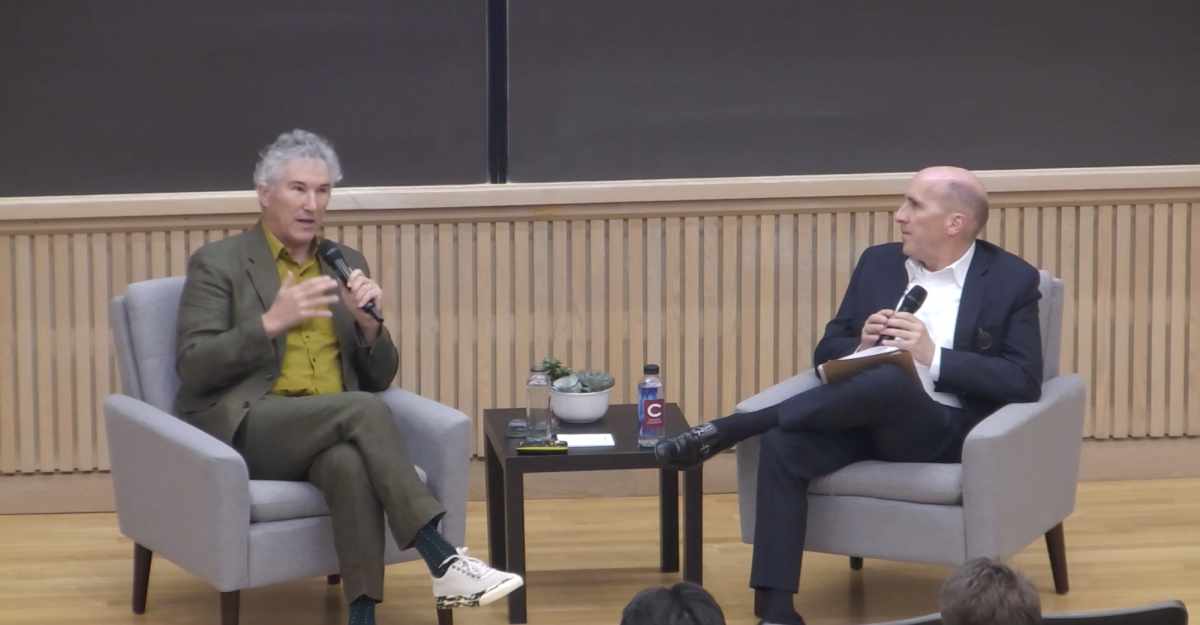When I first saw the trailer for “Mickey 17,” I was immediately intrigued. The science fiction black comedy about an “expendable” doing dangerous menial labor in outer space, being cloned and sent right back to work when he dies, seemed both hilarious and intelligent. When I saw it was to be directed by Bong Joon Ho, the visionary behind “Parasite,” my excitement to see the film only increased. In all honesty, “Mickey 17” was the most I had looked forward to a film for a while.
Watching the delightful cold open, it seemed that my expectations were being met. Imagine my disappointment when the movie grinds to a halt, and the eponymous Mickey gives a voiceover that all but says, “Yep, that’s me. You’re probably wondering how I ended up in this situation.”
Still, I was more or less on board. The movie right out the gate has a brilliantly realized aesthetic. A sort of bleak, post-industrial retro-futurism, the movie occupies a sort of low-tech science fiction. Lighting, set design and costumes all come together to make the icy planet of Niflheim, as well as the ship that took the colonists there, feel very lived in. The design for the planet’s indigenous life, the creepers, is equally well designed, feeling alien and bizarre, equal parts grotesque and adorable. Robert Pattinson also gives a very capable performance as Mickey, endearing himself to the audience with his earnest, simple-minded charm. He feels very believable as the sort of down-on-his-luck person who would sign up to be an “expendable.” New York Times Chief Film Critic Manohla Darvis wrote about Pattinson’s portrayal of Mickey.
“One of Bong’s undersung strengths is that he’s great with actors, and the work that he and Pattinson do with the character’s voice and silent-clown physicality is crucial to pulling off the movie’s tonal expansiveness,” Darvis said. “The physical commitment that Pattinson brings to the role is a consistent delight through all the darkly comic moments of ‘Mickey 17.’”
The main conflict of the film arises when Mickey 17 is left for dead on the surface of Niflheim, and by the time he makes his way to the ship, another clone—Mickey 18—has already been printed. This raises questions about identity and metaphysics. Unfortunately, the movie seems to merely pay lip service to these philosophical gestures. 17 expresses to 18 that each time he died, he felt that he got to continue living as the next clone; yet now that 18 is already printed, he is less sure of that conviction. This leads the audience to question whether each Mickey is the same person. There is one iteration of Mickey that, due to an error in the cloning machine, died fifteen minutes after being born. Is this a unique life tragically cut short or simply an inconvenience for Mickey before he can get back to work? The movie doesn’t take the time it needs to wrestle with these questions.
It’s no surprise that these questions are treated perfunctorily; this movie has more themes than it knows what to do with. At the beginning of the movie, Earth is seen to be devastated by climate change and poverty, with hundreds clamoring to escape to the stars. But before that has time to breathe, Mickey is already in space, and his effective immortality is being used to study the effects of radiation and alien viruses on humanity. The dilemma of using his suffering to ultimately make space travel safer for all is an interesting one, but by then, the spaceship is rationing food, and Bong’s signature class commentary is present. Switching lanes, the expedition’s leader, Kenneth Marshall, shows up as a critique of authoritarianism, complicated with a eugenics angle that isn’t addressed later when he says that he wants a “pure white” planet to rule over. The organization leading the expedition is somehow a church and a corporation at the same time (pick a lane). Then, the mistreatment of the alien creepers serves as an allegory for colonialism that makes James Cameron’s “Avatar” look subtle. Each theme is conceived, trotted out to do its work, killed unceremoniously after a brief time and another one is made to take its place. Sound familiar?
The character of Kenneth Marshall bears referencing because he was easily the worst part of “Mickey 17.” Mark Ruffalo gives a dreadful performance, strutting about with a Trump impression that wouldn’t be out of place in a slow season of Saturday Night Live. His supporters wear red hats and he makes megalomaniacal speeches, and it’s all just so predictable — baby’s first social commentary. He’s a tonal wrecking ball as well: too over the top to be menacing, but not quite funny either. His wife Ylfa was equally unbearable, which is a real shame because I know Toni Collette is capable of so much more. I’m not sure the same can be said for Ruffalo. Either way, the pair of them completely suck all the air out of every scene they’re in, for better or worse (usually worse). To add insult to injury, after they both meet their deaths, they appear to Mickey once more. They had used the cloning machine to come back, and their villainous plans had only just begun. But no, then Mickey jolts awake, and it was revealed to have all been a dream. At this point I began to look around for some rotten tomatoes I might be able to throw at the screen.
Still, not all Colgate University students took as much umbrage with Marshall as I did; take sophomore August Haston, for example.
“The movie interestingly benefits from having been delayed from its original intended release day, as the satirical elements hit especially harder given the many absurd realities of a second Trump presidency,” Haston said.
If it seems like I’m being overly hard on this “Mickey 17,” it is only because I see how much potential it had. The original premise is a brilliant one that I wanted so badly to see realized. This is the same director as “Parasite,” after all. Christy Lemire from RogerEbert.com noted that the immense success of “Parasite” may be the very reason for fans’ disappointment with “Mickey 17.”
“For fans of 2019’s ‘Parasite,’ ‘Mickey 17’ may feel like a disappointment,” Lemire said. “Perhaps anything would be. Long gone is the exquisite mastery of tone and tension he displayed in his historic Best Picture winner.”
I’m aware that the movie experienced delays due to the writers’ strike, and it’s always easy to point to studio interference. However, my own pet theory is that the pressure got to Bong Joon Ho. Here is a man who had just made one of the most acclaimed films of the twenty-first century. He felt that he had to recapture that lightning in the bottle and was anxious he wouldn’t be able to, so he shot for the stars, literally, going high concept and including every theme and commentary he could think of. The film had real potential, and it’s a pity that his reach exceeded his grasp.


